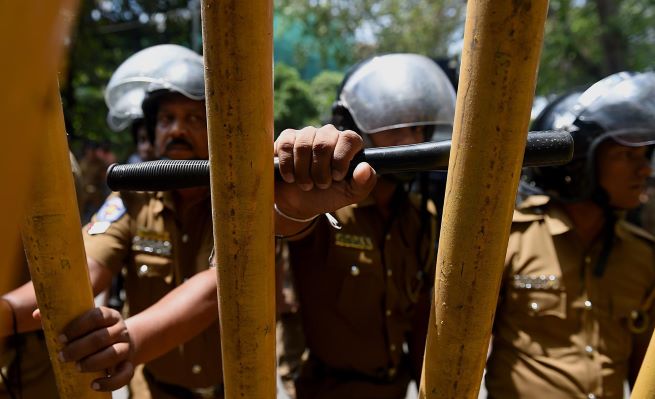Sri Lanka softens terror law after EU trade pressure
COLOMBO – Sri Lanka’s Parliament amended a controversial anti-terror legislation on Tuesday (22) after a European Union threat to withdraw lucrative trading status, but opposition lawmakers said the changes would not stop abuses under the law.
The EU last year warned that the island nation could again lose its generalized system of preferences (GSP Plus) designation – a favourable trade scheme to encourage developing nations to respect human rights – if Colombo did not improve its rights record.
Tuesday’s vote to tweak the Prevention of Terrorism Act (PTA) comes after President Gotabaya Rajapaksa told a delegation from Brussels in October he had committed to urgent reforms of the law.
But Sri Lanka’s main opposition parties withheld support for the amendments, saying they did not go far enough in stopping the arbitrary arrest of dissidents.
“What is needed is a complete scrapping of the PTA and not cosmetic changes,” leftist opposition legislator Anura Dissanayake told Parliament.
The changes reduce detention without trial limits from 18 to 12 months, but still allow confessions coerced from suspects to be used against them in criminal proceedings.
International rights organizations have accused Rajapaksa’s government of persecuting minorities and targeting rights activists.
Rajapaksa was the top defence official in 2009 under the presidency of his brother Mahinda, when the pair crushed the remnants of the Tamil Tigers and ended a decades-long ethnic civil war that claimed over 100,000 lives.
Government forces were accused of war crimes, including the killing 40,000 Tamil civilians in the conflict’s final weeks.
Successive governments have denied the charges and refused to allow an international investigation.
As many as 78 Tamil prisoners are behind bars under the PTA without being formally charged, some of them for more than three decades.
The EU had already withdrawn GSP Plus status for Sri Lanka after accusing Colombo of failing to respect human rights and ensure accountability for alleged war crimes.
The concessions were restored in 2017 after earlier reform promises by Sri Lankan authorities.
-Agence France-Presse


